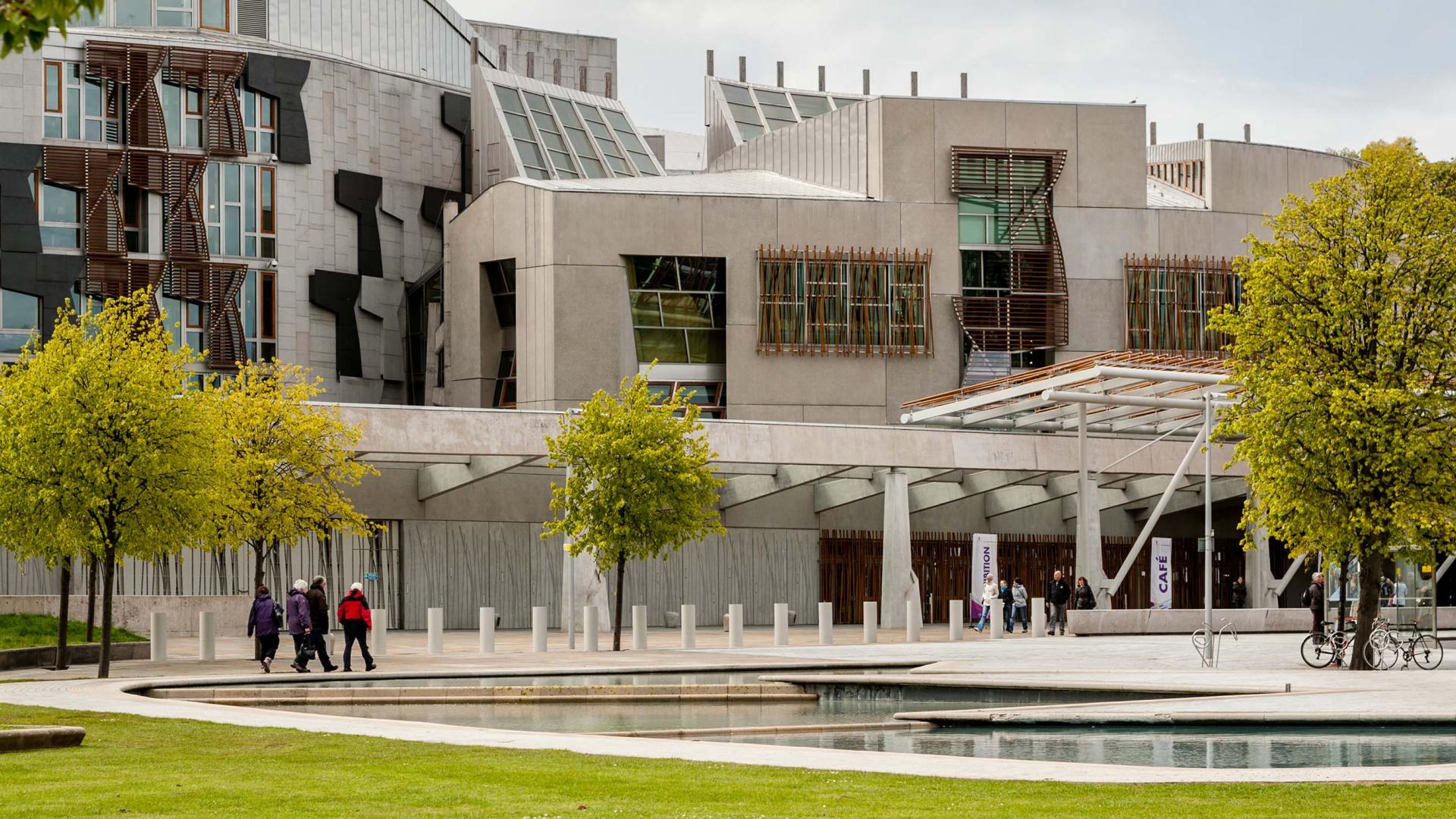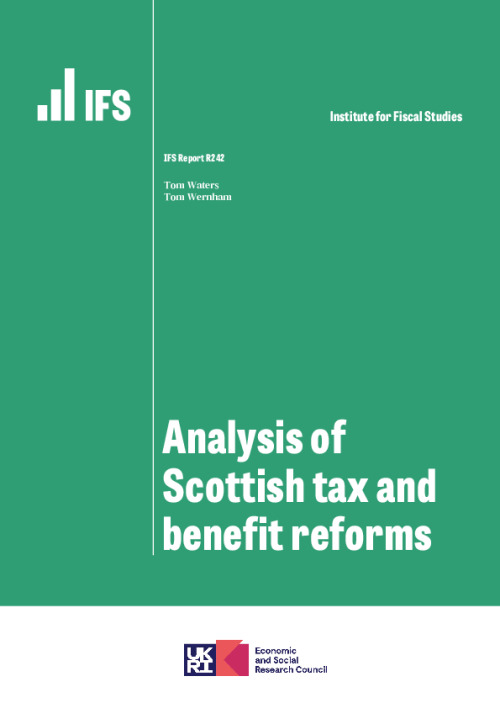In recent years, powers to change the tax and benefit system have been devolved to the Scottish Government. These powers have been used to make the system overall more progressive, with more generous benefits boosting the incomes of poorer households, and higher taxes reducing the incomes of richer households.
With regards to income tax, the Scottish Government has the ability to set income tax rates and bands on income other than from dividend or interest payments, with the exception of the personal allowance. It has used these powers to introduce a new system with more bands and different rates compared with that used in the rest of Great Britain (rGB, i.e. England and Wales), with the consequence that lower earners pay a little less in tax, whilst higher earners pay quite a bit more. All income tax liabilities were increased by the measures announced in the Scottish Budget published in December 2022.
Changes to benefits include the introduction of several new benefits, including the Scottish child payment (which was increased to £25 per week from November 2022, and expanded to cover low-income families with children under 16), and the Best Start grants (providing support for low-income families with babies and young children). Other UK-wide benefits policies are adjusted, for example by topping up carer’s allowance and undoing the effects of the benefits cap and under-occupancy charge (‘bedroom tax’). Overall these changes will deliver a big increase to the incomes of, in particular, low-income families with children. A new system of disability benefits is also being brought in, which will see claims assessed and managed differently, though the rates will be the same.
In this chapter, we first analyse the impact of changes to devolved income tax rates and bands and benefits, taking effect between April 2022 and April 2023, on Scottish households’ take-home incomes, both on average and across the income distribution. We then show the total impact of the changes to income tax and the benefits system since powers were devolved to Scotland. Finally, we focus on disability benefits, which are set to become an area of increasing divergence between Scotland and rGB, and which have seen a recent sharp uptick in applicants across the UK.
Key findings
1. Scottish child payments were increased and extended to more families in November 2022. In addition, the Scottish Budget announced an increase in the top two rates of income tax, and freezes or reductions to income tax thresholds, from April 2023. The combined effect of these reforms is to reduce the average net income of Scottish households by £110 per year, or 0.3%.
2. The effects of these reforms differ significantly across the income distribution. Households towards the top of the distribution will be net losers as a result of the income tax changes, which will cost the richest tenth of Scottish households almost £1,400 per year on average (1.2% of their income). In contrast, poorer households have gained from the increase and big expansion of the Scottish child payment. The poorest tenth of Scottish households will gain the equivalent of almost £260 per year, or 2% of their incomes, on average, from the combined effect of the benefits and income tax changes. Households with children in approximately the bottom third of the income distribution will gain, on average, around £1,200 per year – around 4%–5% of their incomes.
3. These reforms continue a trend of the Scottish Government using its devolved income tax and benefit powers to increase the progressivity of the tax and benefit system. Taken together, reforms to Scotland’s income tax rates and bands and devolved benefits will have reduced the average income of Scottish households by £210 (or 0.5%) per year by 2023–24, compared to what their incomes would be in England and Wales. However, the poorest tenth of households will, on average, have benefited to the tune of £580 (4.6%) per year as a result of higher benefit entitlements, whilst the richest tenth will be £2,590 (2.1%) worse off as a result of higher income tax payments.
4. There has been a sharp increase in the number of people successfully claiming disability benefits over the last 18 months, in both Scotland and the rest of Great Britain: the number of people starting disability benefits was 90% above its 2016–20 average in October 2022 in Scotland, and 96% higher in England and Wales. This does not appear to be due to eligibility tests becoming less stringent as there has been a similar increase in the number of people applying and being found ineligible
5. The Scottish Government has begun to roll out a new devolved disability benefit, adult disability payment, to replace the UK’s pre-existing personal independence payment. The expectation is that changes to the assessment and re-appraisal process will result in more people being found eligible for support. If this occurs, this will boost the incomes of a group that tend to have low living standards (half of the most materially deprived individuals living in Scotland report being disabled). However, especially in the context of an uptick in claims, this will put further pressure on Scotland’s benefits budget.












